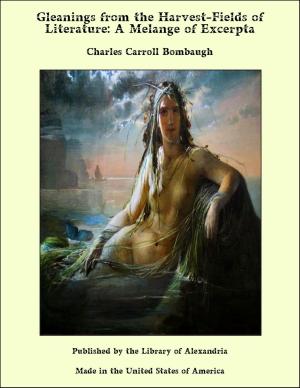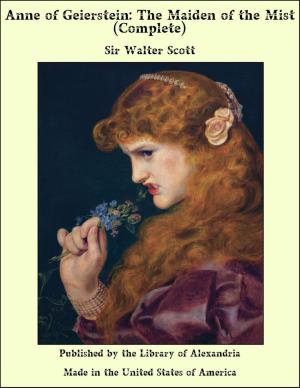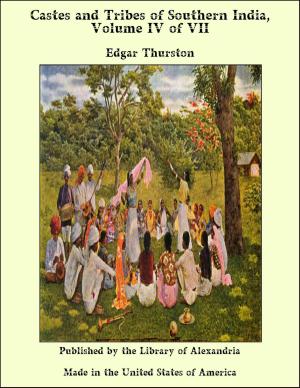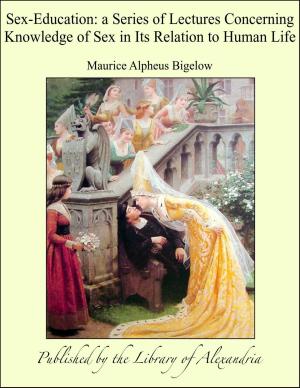| Author: | Bankim Chandra Chattopadhyay | ISBN: | 9781465615442 |
| Publisher: | Library of Alexandria | Publication: | March 8, 2015 |
| Imprint: | Language: | English |
| Author: | Bankim Chandra Chattopadhyay |
| ISBN: | 9781465615442 |
| Publisher: | Library of Alexandria |
| Publication: | March 8, 2015 |
| Imprint: | |
| Language: | English |
In the village of Haridrâ dwelt a great Zemindâr. His name was Krishna Kanta Râi, and he was a very wealthy man. The profit from his Zemindâriamounted to nearly two lakhs of rupees. This wealth had been accumulated by himself and by his brother, Râm Kânta Râi, working together. The brothers were warmly attached, and at no time had it entered into the mind of either that the other could deceive him. The estates had all been bought in the name of the elder brother, Krishna Kanta Râi. The brothers messed together. Râm Kânta Râi had one son named Gobind Lâl. After the birth of this son it came into Râm Kânta's mind that the brothers' joint possessions stood in one name, and that for the security of his son proper legal documents should be drawn out. For, though he knew Krishna Kanta incapable of deceiving him, or of acting unjustly towards him, yet what certainty had he as to what Krishna Kanta's sons might do after their father's death? Yet he could not bring himself to propose having legal papers made out, so he put it off from day to day. Necessity called him away to the estates, and there, suddenly, he died. If Krishna Kanta had ever desired to cheat his brother's son, and appropriate the entire property, there was now no obstacle in his way. But he had no such evil intention. He placed Gobind Lâl with his own family, and treated him in all respects like his own sons; he determined to draw up a will bequeathing to Gobind Lâl the half-share justly belonging to Râm Kânta Râi. Krishna Kanta Râi had two sons and a daughter. The eldest son was named Hara Lâl, the younger Binod Lâl, the daughter Shoilobati. In his will Krishna Kanta bequeathed to Gobind Lâl half the estate, to Hara Lâl and to Binod Lâl, each three-sixteenths, to the widow and to the daughter each one-sixteenth. Hara Lâl was very unruly; disobedient to his father, and evil-tongued. The provisions of a Bengali will seldom remain secret, and Hara Lâl, becoming acquainted with this disposition of the property, said to his father.
In the village of Haridrâ dwelt a great Zemindâr. His name was Krishna Kanta Râi, and he was a very wealthy man. The profit from his Zemindâriamounted to nearly two lakhs of rupees. This wealth had been accumulated by himself and by his brother, Râm Kânta Râi, working together. The brothers were warmly attached, and at no time had it entered into the mind of either that the other could deceive him. The estates had all been bought in the name of the elder brother, Krishna Kanta Râi. The brothers messed together. Râm Kânta Râi had one son named Gobind Lâl. After the birth of this son it came into Râm Kânta's mind that the brothers' joint possessions stood in one name, and that for the security of his son proper legal documents should be drawn out. For, though he knew Krishna Kanta incapable of deceiving him, or of acting unjustly towards him, yet what certainty had he as to what Krishna Kanta's sons might do after their father's death? Yet he could not bring himself to propose having legal papers made out, so he put it off from day to day. Necessity called him away to the estates, and there, suddenly, he died. If Krishna Kanta had ever desired to cheat his brother's son, and appropriate the entire property, there was now no obstacle in his way. But he had no such evil intention. He placed Gobind Lâl with his own family, and treated him in all respects like his own sons; he determined to draw up a will bequeathing to Gobind Lâl the half-share justly belonging to Râm Kânta Râi. Krishna Kanta Râi had two sons and a daughter. The eldest son was named Hara Lâl, the younger Binod Lâl, the daughter Shoilobati. In his will Krishna Kanta bequeathed to Gobind Lâl half the estate, to Hara Lâl and to Binod Lâl, each three-sixteenths, to the widow and to the daughter each one-sixteenth. Hara Lâl was very unruly; disobedient to his father, and evil-tongued. The provisions of a Bengali will seldom remain secret, and Hara Lâl, becoming acquainted with this disposition of the property, said to his father.















